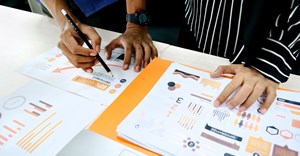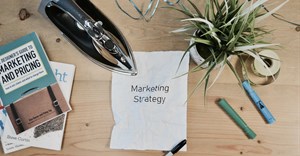Subscribe & Follow
Trending
Why being human in the age of AI matters

The robots aren’t coming — they’re already here. But it’s not all doom and gloom. Quite the opposite, in fact. The age of AI needs to be seen as an opportunity for exploration into how we can humanise the future of work to complement and even enhance AI, automation, and productivity.
According to Kevin Roose, an award-winning New York Times technology columnist, AI and automation are already changing the way we work, even for highly-educated, white-collar workers in the knowledge economy.
The impact of AI on the future of jobs
The assumption that machines will one day “take over” is not a new concern. In the course of research for his book “Futureproof: 9 Rules for Humans in the Age of Automation,” Roose found that for hundreds of years, we’ve been predicting what machines can and can’t do - and that usually, we’re wrong.
Below are some examples of predictions that now seem absurd in their naivety.
- “I can state flatly that heavier-than-air flying machines are impossible.” - Lord Kelvin, 1895
- “There is no prospect whatsoever that the employment of electronic digital computers in the field of translation will lead to any revolutionary changes.” - Yehoshua Bar-Hillel, 1962
- “You won’t get the best seating or the best fares … what happens if you just press the wrong button?” - travel agency owner quoted in a 1984 New York Times article on the first automated ticket machines at airports
The disruptive technologies that would prove each of those predictions wrong went on to reshape economies and workforces forever.
Areas in which AI could reign supreme
Forget about robots on the assembly line as the typical agent of job displacement, AI has made advances in fields that many people never imagined were vulnerable to automation:
- Healthcare: Machine-learning algorithms can diagnose some types of cancer or perform common X-rays with better accuracy than human radiologists. Other AI applications are in the works that can detect illnesses ranging from cancers to Parkinson’s disease from smelling human breath.
- Creative work: AI can compose music, write prose, build video-game levels, and write newspaper articles that are indistinguishable from human output.
- Coding: Low-code or no-code development platforms take the complexity out of coding.
- Analysis/pattern recognition: AI and machine learning are analysing data sets to identify patterns and trends. They are reporting real-time insights and can even predict, in some cases, what’s likely to happen next.
- Influencers: Some of the biggest social-media influencers aren’t human - they are AI-designed models.
- Lip-reading: While the average human accurately lip-reads 54% of the time, a deep network created by Oxford and Google DeepMind scientists, LipNet, reached a 93%success score in reading people’s lips.
- Creating AIs: Given the ability AI has to quickly process large data sets, it’s able to create child AI applications that outperform human-created AIs.
- Listening: Whether it’s adding items to your shopping list, or producing meeting minutes from our Zoom calls, AI applications can more accurately capture and process what they hear than many humans.
Future-proof your career
For individuals to protect themselves from being replaced by AI and robots they need to understand that every job as it exists today can, in some way, be automated.
But the good news is that human creativity and resolve is at an all-time premium. And it’s not limited to big “C” creatives.
Now is the time to build on the roles and capabilities that can be automated to deliver new value at every level. Upskilling is now for everyone. Creativity, empathy, critical thinking, collaboration, data science, resilience, adaptability, and other “not-so-soft” skills are ranked as critical for everyone in a pandemic world and beyond.
As AI drives down the price of goods and automated services, it also increases the value of human goods and human experiences.
The best way to differentiate yourself is through your humanity and creativity, not your productivity. Accentuate the human labour involved in what you do or what you make - whether it’s making a ceramic bowl, providing customer service, selling a technology product, or how you show up in any given moment to be present, aware, and ready to participate.

















